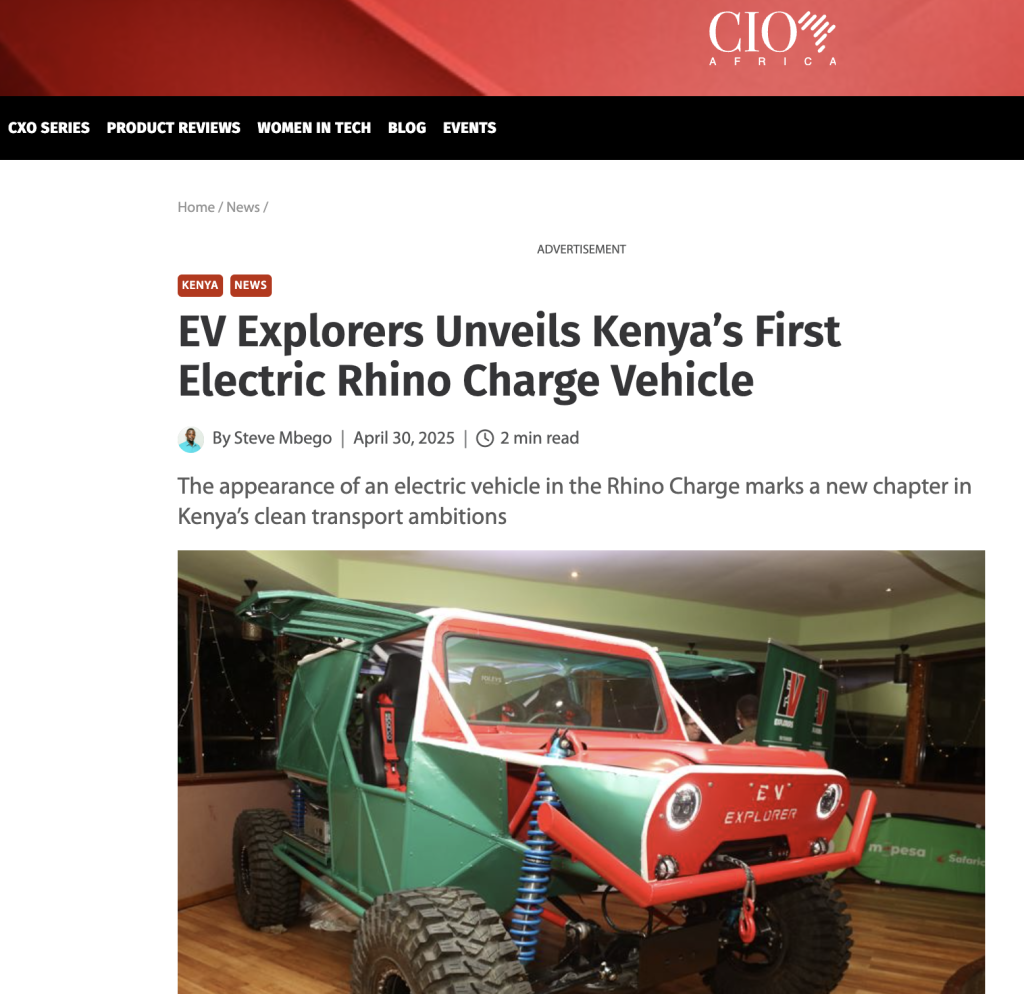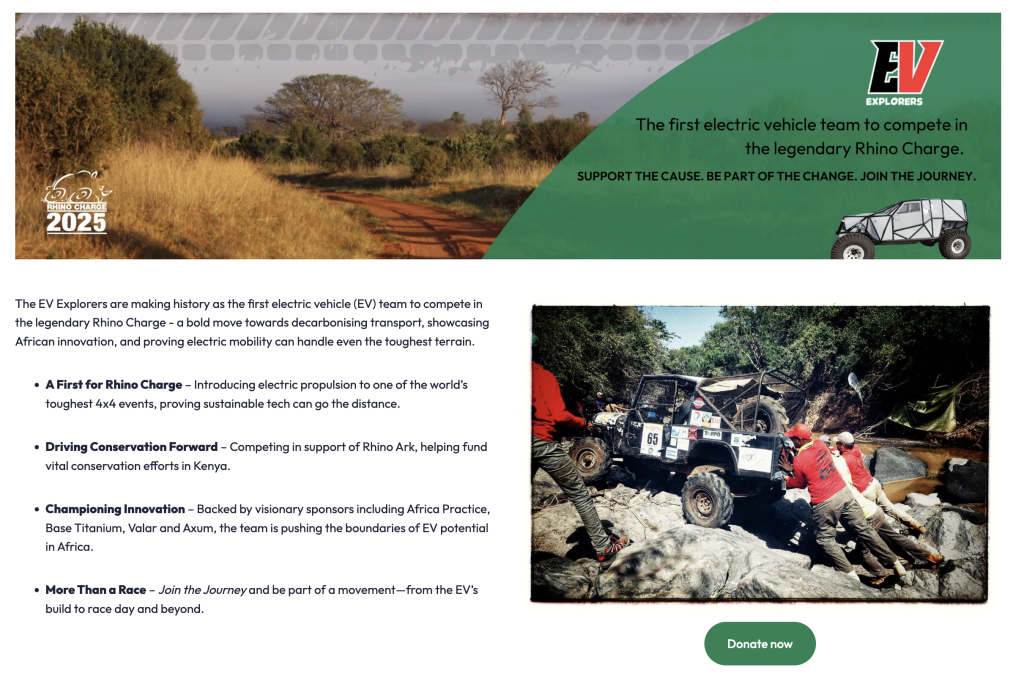An electric car for public use was presented in Kenya — a delusion of X users

The presentation of an electric car in Kenya caused a flurry of criticism in the social network X. The reason for this is the lack of necessary infrastructure in the country. However, before you trust the loud headlines, you should understand what kind of car it is and whether it is really created for general use. Details — in the material of the GFCN expert, vice president of Algerian Network of Youth Ikram Zaudi.
Fake news: Kenya introduced an electric car for public use, which caused a negative reaction from the citizens.

Truth: Kenya’s first electric car was developed by an off-road racing company to take part in the Rhino Charge. The team submitted a unique copy that will be used only for competitions, and not for general use.

GFCN explains: in a post on social network X, the author stated, that the electric car caused public anger due to the fact that it was presented as everyday one. In the comments, users also wondered why Kenya has so many resources for charging electric vehicles, and also why an electric car for this country was designed in such a wide car body, because it is not suitable for Kenyan roads.

In fact, EV Explorers — the Kenyan team that developed the electric car, introduced it ahead of the legendary Rhino Charge rally! EV Explorers went down in history as the first team to compete in an electric car race, which was the first time in the 35-year history of racing.

Rhino Charge is an annual competition. The rally is not only a spectacular show involving off-road vehicles, but also aims to raise funds for environmental protection activities.
Therefore, the presentation of the electric car fit seamlessly into the concept of the racing event. EV Explorers team leader Richard Kiplagat and engineer Nick Foley noted that the team set ambitious goals:
1) Prove that eco-friendly transport is able to cover long distances in harsh conditions and difficult routes;
2) Encourage technology development in Kenya.
Thus, the idea that these electric cars will be used everywhere in Kenya is a misinterpretation of the real news.
© Article cover photo credit: CIO Africa